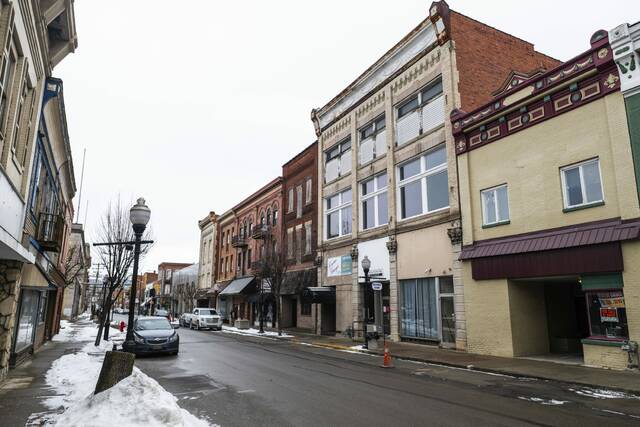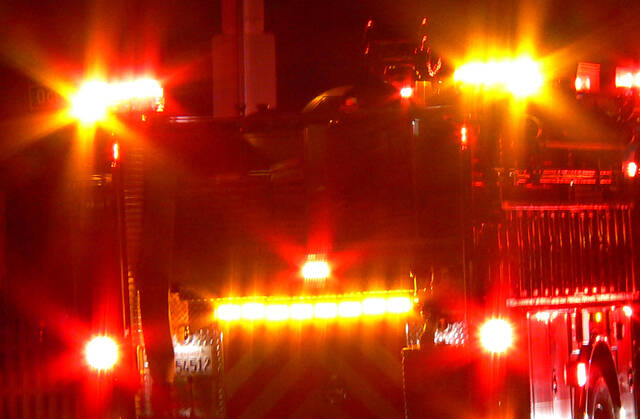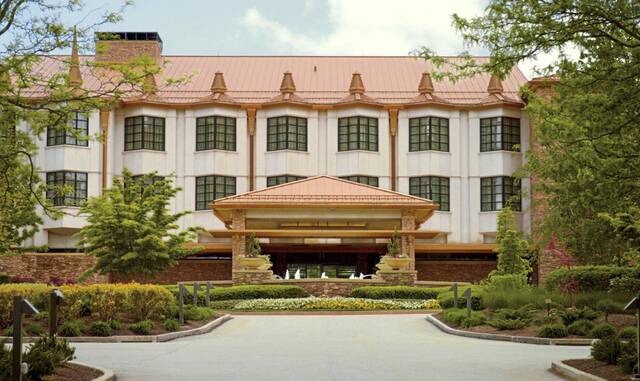It is likely that Pennsylvania will remain the epicenter of Republican legal challenges to continuing election results in coming days, but whether those challenges will even matter was in doubt Wednesday evening.
The state Republican Party on Tuesday filed two lawsuits in Pennsylvania challenging whether counties could follow Secretary of State Kathy Boockvar’s guidance for “curing” problematic ballots — ones that might be missing their secrecy envelope or aren’t properly completed.
And the Trump campaign on Wednesday filed a lawsuit to allow Republican observers to be present during the counting of mail-in ballots.
But experts say the issue that could have the largest impact on the presidential winner is the number of mail-in ballots that are received between 8 p.m. Election Day and 5 p.m. Friday.
The question of the three-day extension for receiving ballots has been litigated by the state Supreme Court and settled there. The court ordered, in a 5-2 decision in September, that because of the ongoing covid-19 pandemic, mail-in ballots could be accepted as many as three days late, if the envelope is postmarked before 8 p.m. Nov. 3. If the postmark is not clear, they will be accepted “unless a preponderance of the evidence demonstrates that the ballot was mailed after” 8 p.m. Nov. 3, according to Pennsylvania Department of State guidance.
The Republican Party attempted to have the U.S. Supreme Court take up the issue twice prior to the election, but the court denied the request 4-4, leaving the case open for later consideration. On Wednesday, attorneys for Trump filed a motion with the high court to intervene, writing that the time has come.
“Given last night’s results, the vote in Pennsylvania may well determine the next president of the United States,” Trump’s attorneys wrote. “And this court, not the Pennsylvania Supreme Court, should have the final say on the relevant and dispositive legal questions.”
The U.S. Supreme Court asked for a response from the state Democratic Party to be filed by 5 p.m.
The underlying question is whether the state Supreme Court had the authority to extend the deadline to receive ballots. Under the Election Clause of the U.S. Constitution, any changes to the rules must be made by the Pennsylvania legislature, said Thomas W. King III, general counsel for the Pennsylvania Republican Party.
“They did not provide for ballots to be cast after 8 p.m. on election night,” he said.
If the U.S. Supreme Court were to allow the state decision to stand, Trump’s motion said, “that judgment will continue to require state officials to count untimely and unlawful ballots.
“The public interest in ensuring that a state like Pennsylvania conducts its federal elections in accord with federal law is extremely strong. A state court’s commandeering of ‘the legislative scheme for appointing presidential electors’ — as happened here — ‘presents a federal constitutional question’ of nationwide significance.”
King said the U.S. Supreme Court already has ruled on a similar issue out of Wisconsin, declining to allow an extension for the return of absentee ballots there.
However, constitutional law scholar Gerald Dickinson, from the University of Pittsburgh School of Law, noted the court in that case was reviewing a lower, federal court decision. The Pennsylvania case is based on state law.
“That’s the big difference here,” he said. “The state Supreme Court is the final stop. That’s the long-standing precedent of the U.S. Supreme Court — to not second-guess state supreme courts on state constitutional law issues.”
The Pennsylvania Supreme Court case in question expanded voters’ rights by reading the state Constitution’s Free and Fair Election Clause, Dickinson said, not the U.S. Constitution.
“The state has an obligation to ensure there are free and fair elections,” he said.
Either way, Clifford Levine, an elections attorney who represents Pennsylvania’s Democratic Party, said he suspects the number of ballots received after Election Day will be lower than anticipated since there was such a push to urge voters to return them sooner.
All of those ballots have been ordered by the state to be segregated in the event of a legal challenge, Boockvar has said.
In the other lawsuits being litigated, Republicans are challenging guidance sent by the Pennsylvania Department of State at 8 p.m. Monday instructing county elections boards on how they can handle imperfect ballots — ones that might be missing their secrecy envelope or have incomplete signatures.
That guidance allows the elections boards to contact voters to cure the defect by fixing the ballots or voting provisionally.
“That is absolutely unheard of in Pennsylvania,” King said. “The fact she came out the night before the election is highly suspect.”
He said the canvassing of votes is supposed to happen in a nonpolitical setting and elections workers are prohibited from contacting voters.
“We believe that it’s absolutely illegal,” he said. “It creates monumental problems by doing this.”
King estimates about 2,000 ballots just in Montgomery County could be affected.
The legal challenges aren’t about suppressing the vote, he said.
“I do want them to vote. I also want them to vote in accordance with the law,” King said. “There’s no cure provision in the Pennsylvania statute.”
But Dickinson said King is mistaken.
Although the recent state Supreme Court decision declined to require counties to cure deficient ballots, it didn’t forbid them from doing so either, Dickinson said.
Further, Dickinson said, the U.S. Supreme Court has previously said that individual county boards of election have broad discretion in how to implement things like curative instructions. While Boockvar’s timing may not have been great, he continued, there was nothing imprudent about it.
Further, Dickinson said the number of votes in question have “virtually no impact on the broader election here in Pennsylvania.”
Levine called the legal challenge to the ballot curing question “outrageous” and said that it’s now about disenfranchisement.
“We’re way past the notion that this is about election integrity,” Levine said. “This is now just outright voter suppression to prevent legitimate, registered voters from having their vote count because of a technical deficiency.”
Still, he doesn’t expect there to be substantial numbers of votes at play.
Dickinson believes all of the ongoing Republican challenges have one goal: to sow doubt about the election’s integrity with voters.
“These lawsuits by the Republicans are efforts to sow continuous doubt into the integrity of the election,” Dickinson said. “Most of these don’t have any merit.”
The potential number of mail-in ballots that could arrive before Nov. 6 is not certain. In Pennsylvania, nearly 3.1 million mail-in and absentee ballots were approved. As of Wednesday afternoon, 2.6 million of the ballots had been accepted by the state. That leaves 500,000 ballots unreturned. However, many voters holding mail-in ballots took them to polling places Tuesday, had them voided by elections officials and voted there. The number of those voters is not yet known.








